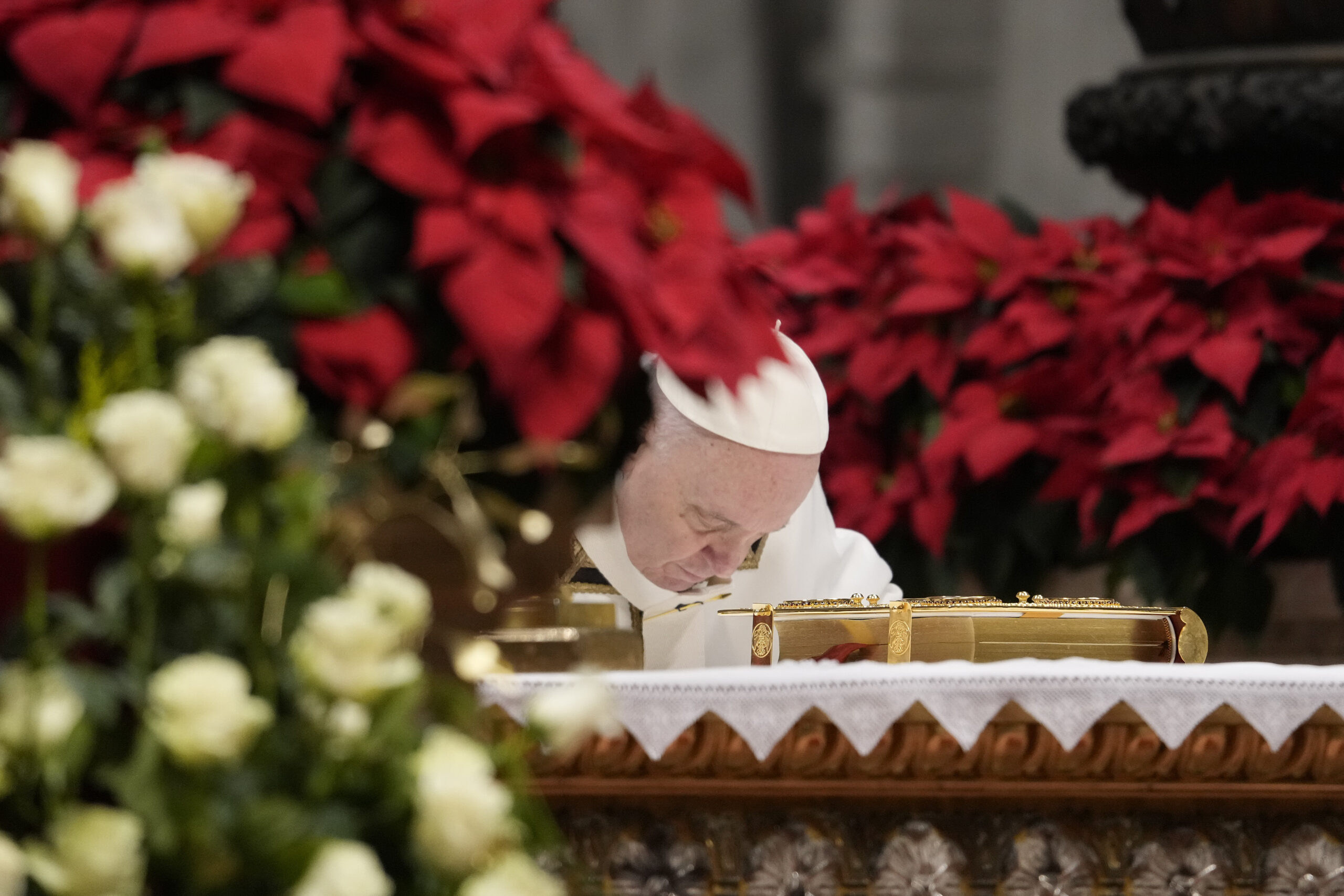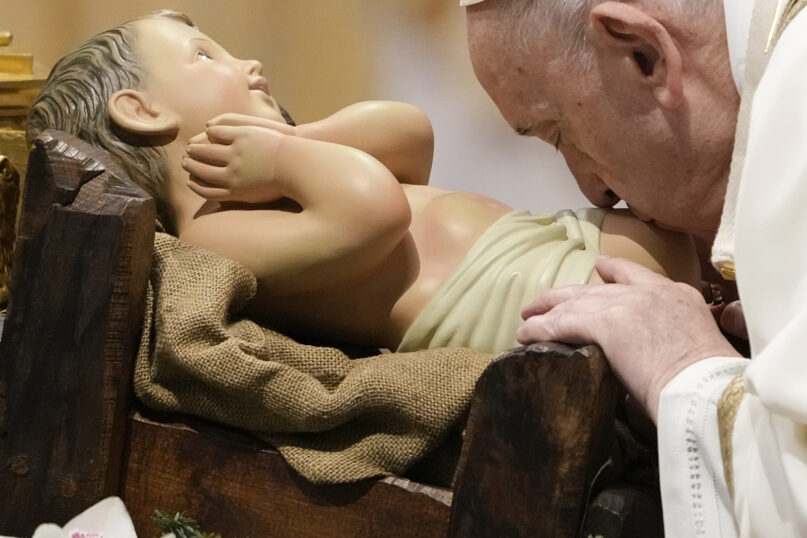VATICAN CITY (RNS) — During his homily for the feast of the Epiphany on Thursday, Pope Francis laid out his hopes for the new year, urging Catholics to set aside “conventional, external and formal religiosity” and embrace the desire to seek “new paths.”
Also known as Three Kings Day, the Epiphany celebrates the visit of the Magi and the revelation of God incarnate in the newborn Jesus. The feast day is observed in Italy on Jan. 6. During a solemn Mass in St. Peter’s Basilica, the pope used his homily to urge Catholics, especially clergy, to learn from the Magi’s “school of desire.”
“The journey of life and faith demands a deep desire and inner zeal,” Pope Francis said, adding an off-the-cuff remark that “sometimes we live as if in a ‘parking lot,’” forgetting the “desire that carries us forward.”
The pope encouraged Catholics to ask themselves questions on their faith journey, not only as individuals but as a church. “Have we all been stuck too long, nestled inside a conventional, external and formal religiosity that no longer warms our hearts and changes our lives? Do our words and our liturgies ignite in people’s hearts a desire to move toward God? Or are they a ‘dead language’ that speaks only of itself and to itself?” Francis asked.
In July 2021, Pope Francis issued a decree, also called motu proprio, that applied strong restrictions to the celebration of the Tridentine Mass, which is done in Latin. The Vatican later clarified the restrictions and decried the “sterile polemics” that it raised, saying it’s “capable only of creating divisions.”
Rather than settling for “maintenance,” faithful should welcome the novelty and joy of the gospel, Francis said, adding that “it is sad when a priest has closed the door of desire, sad to fall into clerical functionalism.”
While the pope’s criticism wasn’t only directed toward clergy or die-hard traditionalists, a significant portion of the homily was directed at “closed communities of individuals, bishops, priests or consecrated men and women.”

Pope Francis bows at the altar as he celebrates an Epiphany Mass in St. Peter’s Basilica, at the Vatican, Jan. 6, 2022. (AP Photo/Gregorio Borgia)
Many of Pope Francis’ reforms have been aimed at opening the doors of traditionally enclosed Catholic realities, from lay Catholic movements to convents, from the liturgy to the Roman Curia. Just as in society, the church suffers from a “slumbering of the spirit,” the pope said.
“The lack of desire leads only to sadness and indifference, to sad communities, sad priests or bishops,” he added.
RELATED: The Vatican’s Pontifical Academy for Life takes on vaccine skeptics on social media
As the Roman Catholic Church braces for this year’s new wave of reforms — including a long-awaited apostolic constitution poised to shake up the offices and departments that make up the Roman Curia — the pope encouraged faithful to take a few tips from the three wise men.
“The Magi teach us that we need to set out anew each day,” Francis said, especially when it comes to faith, which he described as a “constant and restless movement” instead of “a suit of armor that encases us.”
The Magi also remind Catholics of the importance of questioning, listening and challenging “the sinister logic of power,” the pope continued, just as modern-day Herods — the king who tried to recruit the three wise men in his murderous search for Jesus — threaten the world with death and suffering.
“They challenge us to take new paths,” Francis said, before pointing to the Synodal Path he inaugurated in October of last year to launch a drastic reform of the hierarchical structures that have defined the Catholic Church for centuries.
The synod will take place over the course of three years, with consultations at every level of the church, and will conclude with a summit of bishops at the Vatican in 2023 tasked with drafting a document that reflects the needs and concerns of the church today.
RELATED: Earth: One of God’s failed experiments?





